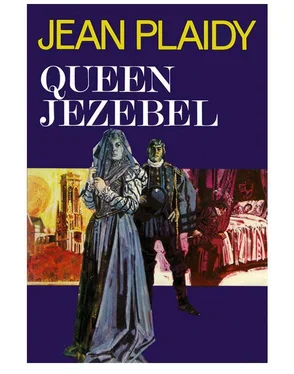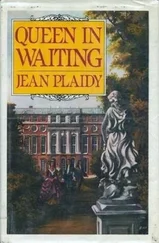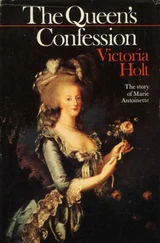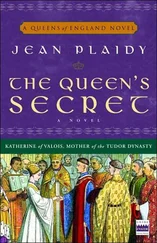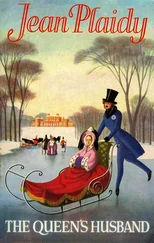Виктория Холт - Queen Jezebel
Здесь есть возможность читать онлайн «Виктория Холт - Queen Jezebel» весь текст электронной книги совершенно бесплатно (целиком полную версию без сокращений). В некоторых случаях можно слушать аудио, скачать через торрент в формате fb2 и присутствует краткое содержание. Жанр: Исторические любовные романы, на английском языке. Описание произведения, (предисловие) а так же отзывы посетителей доступны на портале библиотеки ЛибКат.
- Название:Queen Jezebel
- Автор:
- Жанр:
- Год:неизвестен
- ISBN:нет данных
- Рейтинг книги:4 / 5. Голосов: 1
-
Избранное:Добавить в избранное
- Отзывы:
-
Ваша оценка:
- 80
- 1
- 2
- 3
- 4
- 5
Queen Jezebel: краткое содержание, описание и аннотация
Предлагаем к чтению аннотацию, описание, краткое содержание или предисловие (зависит от того, что написал сам автор книги «Queen Jezebel»). Если вы не нашли необходимую информацию о книге — напишите в комментариях, мы постараемся отыскать её.
Queen Jezebel — читать онлайн бесплатно полную книгу (весь текст) целиком
Ниже представлен текст книги, разбитый по страницам. Система сохранения места последней прочитанной страницы, позволяет с удобством читать онлайн бесплатно книгу «Queen Jezebel», без необходимости каждый раз заново искать на чём Вы остановились. Поставьте закладку, и сможете в любой момент перейти на страницу, на которой закончили чтение.
Интервал:
Закладка:
The Duke of Alençon had finished a game of tennis and had retired to his apartments to brood moodily on his future.
He was a very dissatisfied young man; he could imagine no worse fate than his—to be born the fourth son of a King. There were few who could hold out any hope of his mounting the throne, and he ardently desired to do so.
He was sullen because he believed life had been unfair to him. As Hercule, the youngest of the royal children, he had been such a pretty boy, so spoilt, so pampered—except by his mother—but when he was four years old, he had caught the smallpox, and that delicate skin of his had become hideously pitted; he had not grown so tall as his brothers; he was squat, thickset and swarthy; it was said at court that he was a true Italian, which meant that the French did not like him. But which of his brothers did they like? Sickly Francis? No, they had despised him. Did they love mad Charles? Certainly they did not. And would they love the perfumed, elegant Henry? No. They would hate him more than any. Then why should they not love Francis of Alençon? They had changed his name from Hercule to Francis when his eldest brother had died. He had been delighted at the time, Francis was a King’s name. But his mother had maliciously said, with that cynical laugh of hers, that Hercule was not a suitable name for her little son. He hated her for that; but then he hated her for so many things. Well, then, why should the people of France not take another Francis for their King?
He thought of the marriage with the English Queen, which they were proposing for him, and such thoughts made him very angry. He could not bear ridicule and he knew that courtiers often smirked behind their hands when the subject of his marriage was discussed. The Queen of England was an old woman, a virago, who amused herself by playing tricks on those who came to woo her. She should play no tricks on him. And why should he, a young man of eighteen, be married to a woman of thirty-nine?
One day he would show them all what he would do. They would cease to treat him as a person of no importance then. One day they would have a surprise. He had his friends who would follow whither he led.
He looked from the window of his apartment towards the Tour de Nesle; he let his eyes wander to the three towers of Saint-Germain-des-Prés. He saw the people crowded together, Huguenot and Catholic. There was much roystering in the streets and many a secret counsel in the palace; yet he, the King’s brother, the son of Henry the Second and Catherine de’ Medici, was kept outside the excitement, because he was considered too young and of too little importance!
And as he stood there he saw a cavalcade come riding through the streets. Another great personage come to attend the wedding of his sister. He called to one of his attendants: ‘Who is this riding into the city?’
‘It is the Admiral de Coligny, sir. He is a fool to come riding into Paris thus.’
‘Why so?’
‘He has many enemies, sir.’
The Duke nodded. Yes, there were plots against the Admiral, he doubted not. His mother would have discussed that man when she was closeted with his brothers; but she never discussed her plots with him. He bit his lips until the blood came. He was treated as a child—the youngest son who could never come to the throne, little Hercule who had become Francis because Hercule was the name of a strong man; and he was not even handsome because his skin was so hideously pitted. His mistresses told him he was more handsome than his brother Henry, but that was because although he was the youngest he was still the son of a royal house. He had many mistresses; but any man in his position might have the same number. He was squat and ugly; he was of no importance; and when his mother called him ‘her little frog’ she did not mean to be affectionate. She despised him and had no place for him in her schemes. She wanted him safely out of the way in England.
He laughed aloud at that fool of an Admiral who was riding straight into a trap. He hated the Admiral—not for political or religious reasons—but merely because he was tall and handsome and of great importance.
He saw that the Huguenots in the city had formed a procession about the Admiral and his men, marching along beside them as though to protect them. Catholics stood about sullenly; some shouted abuse. It would take very little to start a conflagration which would lay waste the entire city of Paris.
They were crazy to have arranged this marriage and, arranging it, to have brought together in the capital so many of the Huguenot faith. But . . . were they? Was this the result of some plan of his mother’s?
His brothers would know. Henry of Guise too would doubtless know. All men of importance would know. But they kept Francis of Alençon completely in the dark. It was more than a Prince of the Blood Royal could be expected to endure.
He bit his lip afresh and tried to imagine that those shouting voices called for a new King, and that that King’s name was Francis.
As soon as he was in the presence of the King, Gaspard de Coligny knew that his enemies were working against him. The King’s attitude towards him seemed to have changed completely. When the Admiral had last seen Charles, the young man had embraced him warmly, dispensing with all ceremony. ‘Do not call me Majesty,’ Charles had said. ‘Do not call me Monseigneur. Call me Son and I will call you Father.’ But here was a different monarch. The golden-brown eyes had lost their warmth; they were coldly suspicious. Henry of Guise and his uncle, the Cardinal of Lorraine, were at court, and they were enjoying the favour of the Queen Mother. Yet, during the ceremonial greeting, Gaspard thought he caught a hint of apology in the King’s eyes; but the Queen Mother stood beside her son, and although her greeting might be warmer than that of any other present, still the Admiral trusted her less, and he was sure that the animosity which he sensed emanated from her.
The Admiral came fearlessly to the purpose of his visit: the question of aid for the Prince of Orange and war with Spain.
Catherine spoke for her son. ‘You have been long in coming to Paris, Monsieur l’Amiral. Had you come earlier you might have been present at the military council which I called together to settle this question of war.’
‘A military council, Madame?’ said Coligny aghast. ‘But of what members did this council consist?’
Catherine smiled. ‘Of the Duke of Guise, of the Cardinal of Lorraine . . . and others. Do you wish to hear their names?’ ‘That is my wish, Madame.’
Catherine mentioned the names of several noblemen, and all of them were Catholics.
‘I understand, Madame,’ said Coligny. ‘These councillors would naturally suggest that we should not keep our promises. Such men would never support any expedition of which I was the leader.’
‘We were not, Monsieur I’Amiral, considering a question of leadership; we but considered the good of France.’
The Admiral turned from the Queen Mother and knelt to the King. He took Charles’ hand and smiled up into his face.
Catherine, watching closely, saw the faint flush under Charles’ pallid and unhealthy skin; she saw the affection in his glance. Charles was only free from this man’s influence when the latter was away from court. There was real danger here. The Admiral must not, on any account, be allowed to live many more weeks. Whatever disaster followed on his death, he must die.
‘Sire,’ Coligny was saying, ‘I cannot believe that you will break your promise to the Prince of Orange.’
Charles said very quietly and in a voice of shame: ‘You have heard the result of the council’s deliberation, Monsieur I’Amiral. It is to them that you should address your reproaches.’
Читать дальшеИнтервал:
Закладка:
Похожие книги на «Queen Jezebel»
Представляем Вашему вниманию похожие книги на «Queen Jezebel» списком для выбора. Мы отобрали схожую по названию и смыслу литературу в надежде предоставить читателям больше вариантов отыскать новые, интересные, ещё непрочитанные произведения.
Обсуждение, отзывы о книге «Queen Jezebel» и просто собственные мнения читателей. Оставьте ваши комментарии, напишите, что Вы думаете о произведении, его смысле или главных героях. Укажите что конкретно понравилось, а что нет, и почему Вы так считаете.
